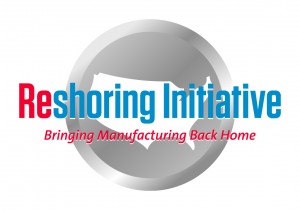
Increasingly, companies report they cannot find individuals with the skills required for the manufacturing workplace.
The skills gap is found at all stages of manufacturing— from engineering and maintenance to production jobs.
The Manufacturing Institute
Affiliated with the National Association of Manufacturers, The Manufacturing Institute
- Attracting the next generation of manufacturing workers by inspiring youth, valuing women and attracting veterans;
- Implementing a set of national industry skill credentials; and
- Assisting manufacturers in developing a qualified and diversified talent pipeline.
The Manufacturing Institute launched the Skills Certification System to address the skills gap challenge and to promote a renaissance of manufacturing education across the country. The Manufacturing Institute has developed a variety of toolkits to help employers, educators and communities across the nation implement skills certifications to build a skilled manufacturing talent pipeline.
The National Institute for Metalworking Skills (NIMS)
NIMS was formed by metalworking trade associations to develop and maintain a globally competitive American workforce, NIMS sets skills standards for the industry, certifies individual skills against the standards and accredits training programs that meet NIMS quality requirements.
NIMS has developed skills standards in various operational areas applicable to the wire industry, such as Machining, Tool and Die Making, Machine Building and Machine Maintenance, Service and Repair. The Standards range from entry (Level I) to a master level (Level III). All NIMS standards are industry-written and industry-validated, and are subject to regular, periodic reviews under the procedures accredited and audited by ANSI.
Reshoring Initiative
 The mission of the Reshoring Initiative is to bring good, well-paying manufacturing jobs back to the United States by assisting companies to more accurately assess their total cost of offshoring, and shift collective thinking from offshoring is cheaper to local reduces the total cost of ownership.
The mission of the Reshoring Initiative is to bring good, well-paying manufacturing jobs back to the United States by assisting companies to more accurately assess their total cost of offshoring, and shift collective thinking from offshoring is cheaper to local reduces the total cost of ownership.
There are many reasons for American manufacturers to reevaluate offshoring and consider reshoring. Companies are increasingly recognizing that costs, risks and strategic impacts previously ignored are large enough to overcome the shrinking emerging market wage advantages. They are seeing the benefits of proximity, i.e. producing in the market, especially when the home market is the U.S., still the world’s largest.


